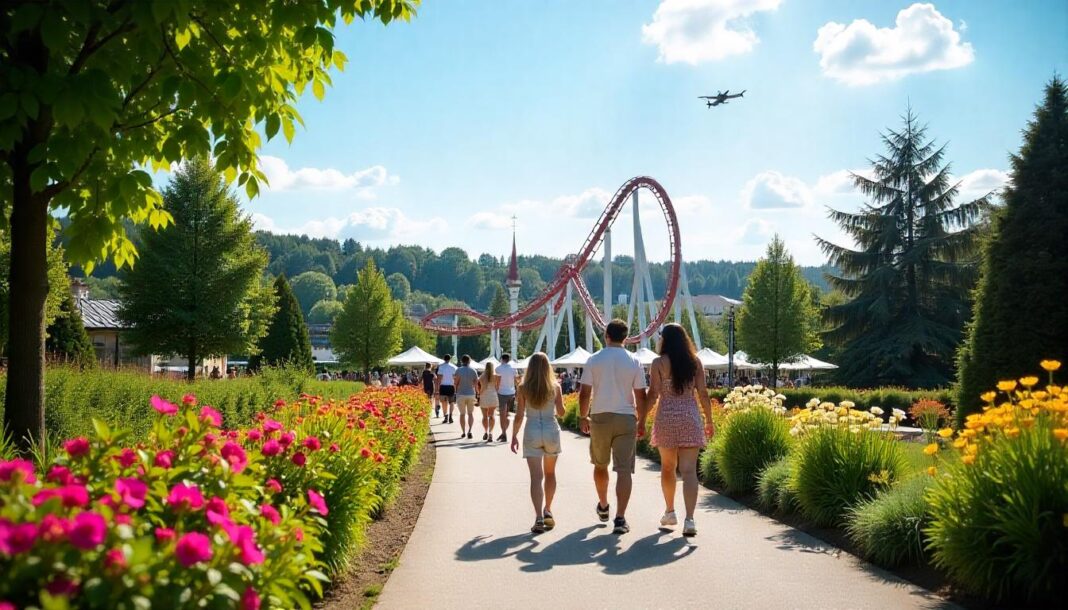Wednesday, May 14, 2025

Germany is set to eliminate second-chance requests for travel visa denials starting July 1, 2025, aligning itself with countries like the US, Canada, Japan, Mexico, Saudi Arabia, and China that no longer allow administrative appeals after a visa is refused. This policy shift follows a successful pilot program showing that removing the remonstration process significantly improved visa processing efficiency and reduced waiting times. By scrapping the appeal option, Germany aims to streamline consular operations and handle more applications, leaving reapplication or judicial review as the only available paths for rejected travelers.
Germany Ends Remonstration: A Policy Decades in Use
The remonstration process, a uniquely German administrative tool, allowed travelers to formally contest visa denials by submitting written justifications directly to the embassy or consulate that rejected their application. In many cases, this non-judicial option gave applicants a second chance without requiring costly legal intervention.
However, following a pilot phase launched in 2023 across several German embassies and consulates, the German Foreign Office concluded that scrapping the remonstration process freed up significant staff capacity, reduced waiting times, and improved overall visa throughput. The shift is accompanied by broader digitization efforts, including a global Consular Services Portal, which has improved the quality and completeness of submitted applications.
What Changes for Travelers?
From July 1, 2025, applicants whose travel visas to Germany are denied will no longer be able to file a remonstration. Instead, they will face two options:
- Submit a New Application: The most straightforward route, though previous denial history may influence outcomes.
- File a Judicial Appeal: A legal process in administrative court that can take months to years and often requires the help of legal professionals.
These options align Germany’s system with a global hardening of post-refusal pathways, where embassy decisions increasingly stand as final, unless readdressed through entirely new applications or court actions.
Countries With No Second-Chance Visa Appeal Process
Germany’s upcoming policy puts it in the company of other major economies that have long denied administrative appeals for visa rejections.
United States
- Most non-immigrant visa refusals, particularly under Section 214(b), cannot be appealed.
- Applicants may reapply but cannot challenge the decision formally.
- Judicial review is rare and impractical in most visa cases.
Canada
- Denials for Temporary Resident Visas (e.g., tourist, student) are final.
- Judicial review in the Federal Court is possible but expensive and complex.
- Reapplication is permitted but must show significant new grounds.
Japan
- Most visa decisions are final and cannot be appealed.
- Reapplication is allowed, but discouraged unless substantial changes occur.
- No formal administrative review exists.
Mexico
- Visa denials are typically non-negotiable.
- Applicants can reapply, but there is no official appeal mechanism.
Saudi Arabia
- No administrative appeals exist for rejected tourist or business visas.
- Applicants must wait or reapply with new documentation.
- Visa denials are generally considered final unless internally reversed.
China
- Visa denials come with no explanation and no right to appeal.
- Applicants can reapply but are advised to do so only after improving documentation or circumstances.
- No court path is available for rejected foreign nationals.
Why Are Countries Removing Second-Chance Options?
This global trend reflects a tightening of immigration systems, especially in high-volume visa nations. Governments are seeking to:
- Reduce consular workloads
- Accelerate processing times
- Discourage repetitive or frivolous applications
- Streamline visa screening systems
Germany’s data from its pilot project showed a noticeable reduction in delays, a higher rate of completed cases, and fewer backlogged appeals once remonstrations were suspended. Similarly, countries like Japan, Canada, and the US cite efficiency and clarity as key reasons for maintaining a no-appeal policy.
The Impact on Applicants
The consequences of these reforms are significant:
- Legal Costs: Judicial appeals in countries like Germany and Canada can cost hundreds or thousands of dollars.
- Extended Timelines: While administrative reviews once took 1–3 months, court appeals may drag on for up to 24 months.
- Higher Rejection Risk: Reapplying without understanding the original reason for rejection may lead to repeat denials.
For many travelers—especially from developing nations or those seeking student or family reunion visas—these changes create new barriers to mobility. Immigration lawyers warn that the removal of informal second-chance options disproportionately affects low-income applicants who lack resources for legal battles.
Germany’s New Digital Framework
As Germany removes the remonstration option, it continues to modernize its visa platform. The Consular Services Portal, active since January 2025, allows applicants to:
- Complete applications online
- Access eligibility guides
- Upload documents
- Reduce submission errors
Officials say this digital-first strategy has improved overall application quality, enabling embassies to make more accurate first-instance decisions and reducing the need for follow-up corrections or reconsiderations.
Germany will scrap second-chance requests for travel visa denials from July 2025, joining countries like the US, Canada, Japan, Mexico, Saudi Arabia, and China that offer no administrative appeal. The move aims to streamline visa processing and reduce delays by eliminating time-consuming reconsideration procedures.
Germany is implementing a new policy to scrap second-chance requests for travel visa denials starting July 2025, aligning with countries like the US, Canada, Japan, Mexico, Saudi Arabia, and China. The move aims to streamline visa processing, reduce embassy workloads, and eliminate delays caused by administrative appeal procedures.
This approach reflects a growing international consensus: visa systems should prioritize speed, consistency, and finality over prolonged reconsideration. While governments may benefit from reduced pressure on consular services, travelers must now approach visa applications with greater precision, preparation, and realism—because the opportunity to appeal may soon be a thing of the past worldwide.



